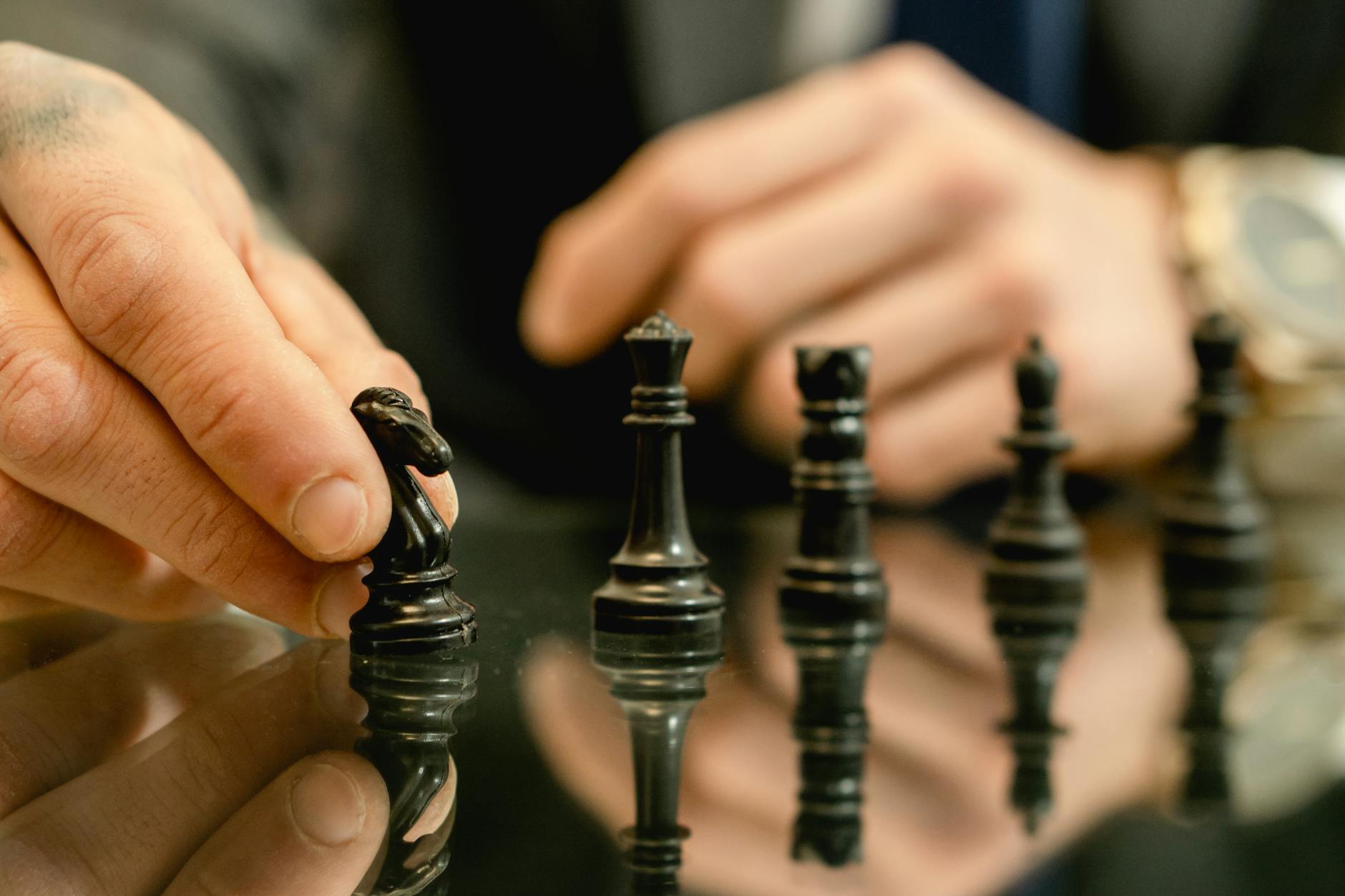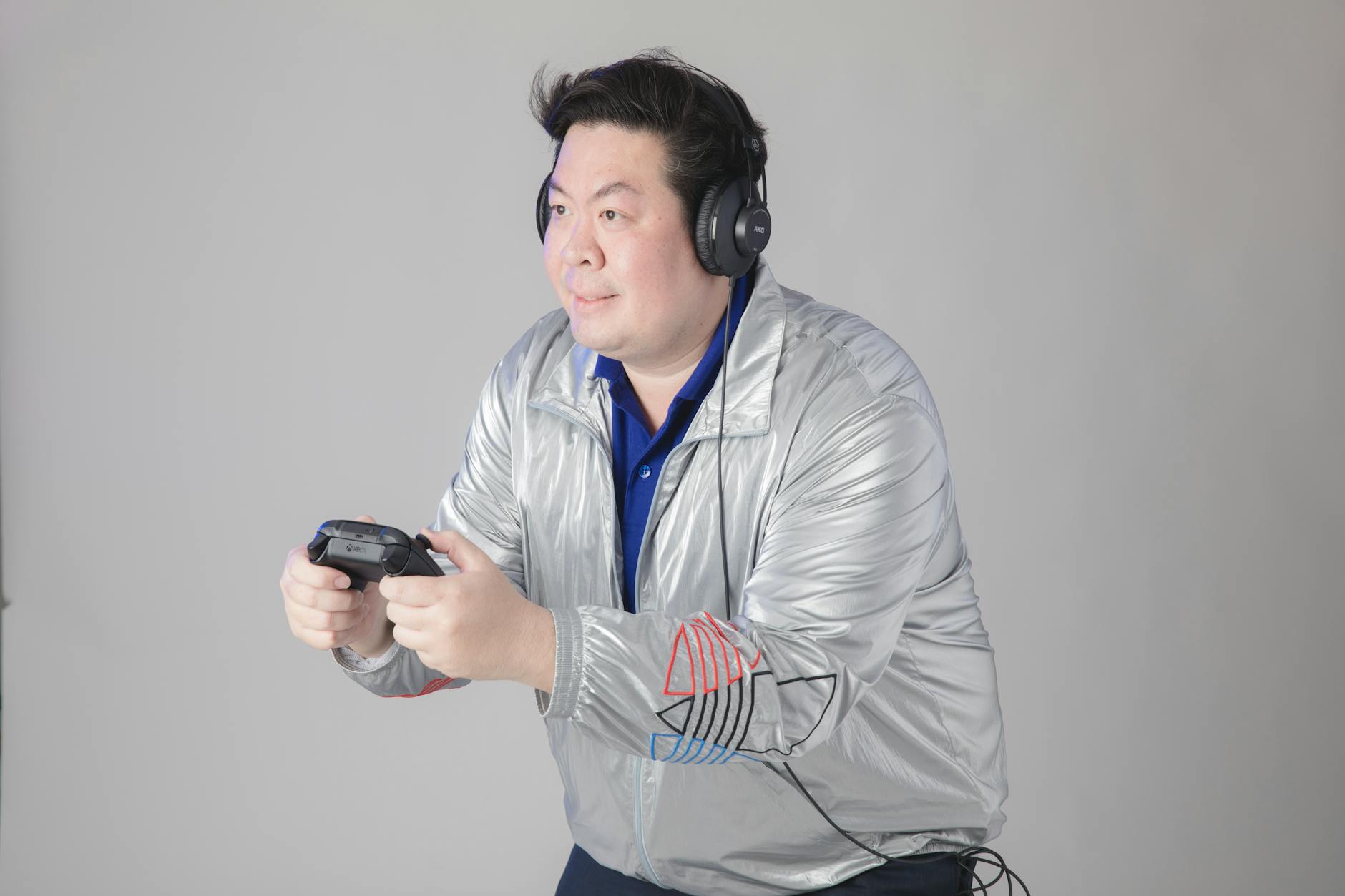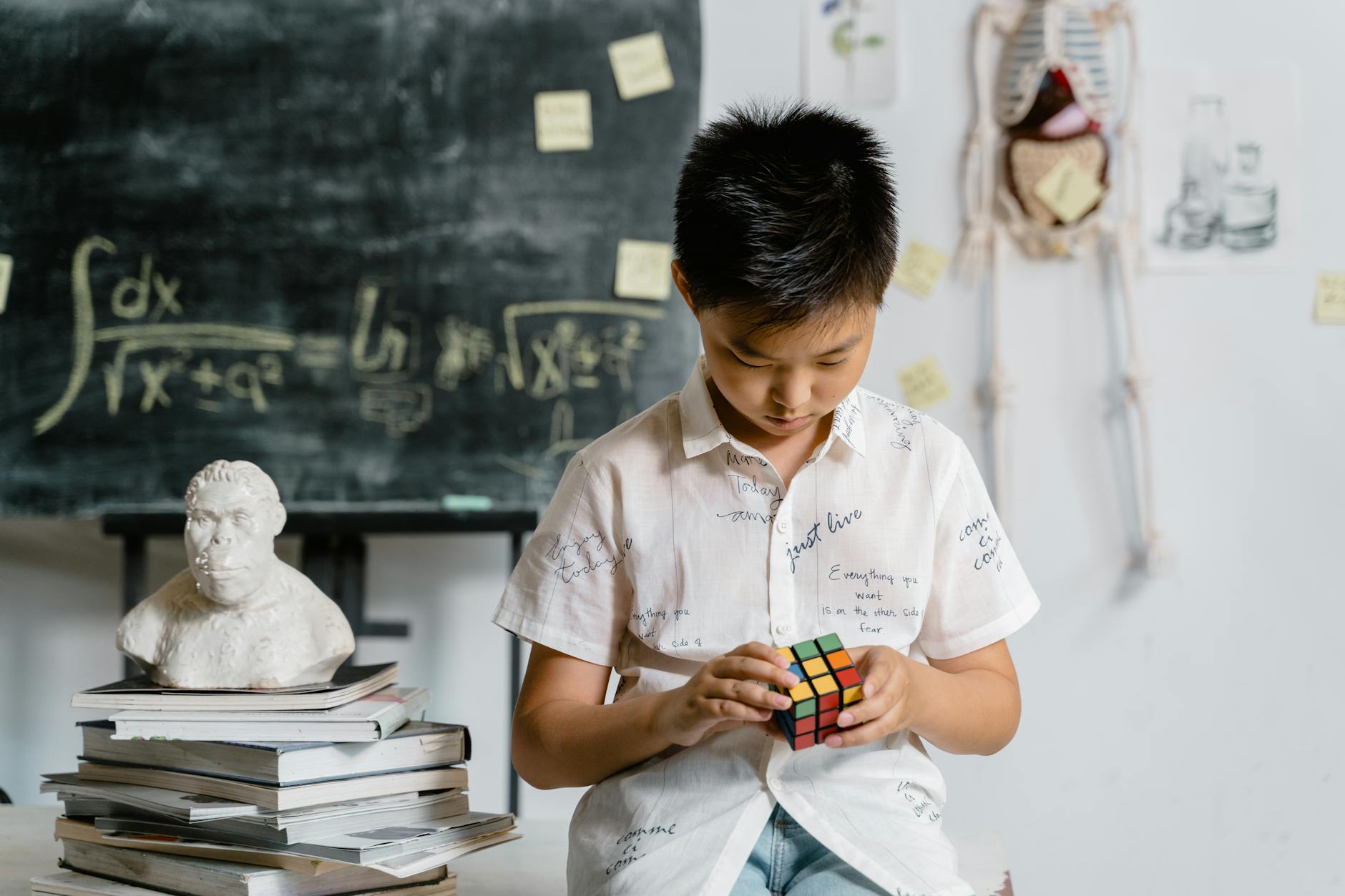Brain Games: Fun Activities to Sharpen Memory and Focus
🧠 Are you finding it harder to remember where you left your keys or struggling to concentrate on tasks for extended periods? You’re not alone. In our fast-paced world, maintaining sharp memory and laser-like focus can feel like an uphill battle. But what if you could turn this challenge into a fun, engaging experience?
Enter brain games – the secret weapon in your cognitive arsenal. These entertaining activities aren’t just about passing time; they’re scientifically designed to give your brain a workout, enhancing your memory and focus in ways you never thought possible. From classic puzzles to cutting-edge apps, brain games offer a diverse and exciting approach to keeping your mind in top shape.
In this blog post, we’ll dive into the fascinating world of brain games, exploring memory-boosting activities, focus-enhancing challenges, and even how technology and physical activities play a role in mental sharpness. We’ll also look at social brain games and DIY options, ensuring there’s something for everyone. So, are you ready to unlock your brain’s full potential while having a blast? Let’s embark on this mind-bending journey together! 🚀🧩
Understanding Brain Games

A. Definition and purpose
Brain games are engaging mental exercises designed to challenge and stimulate various cognitive functions. Their primary purpose is to enhance mental acuity, improve memory, and sharpen focus through regular practice. These games often take the form of puzzles, quizzes, or interactive activities that target specific areas of cognitive performance.
B. Benefits for cognitive function
Brain games offer numerous benefits for cognitive function:
- Enhanced memory retention
- Improved problem-solving skills
- Increased attention span
- Better processing speed
- Strengthened neural connections
| Cognitive Function | Brain Game Benefit |
|---|---|
| Memory | Improved recall and retention |
| Focus | Enhanced concentration and attention to detail |
| Problem-solving | Developed critical thinking and analytical skills |
| Processing speed | Faster information processing and decision-making |
| Cognitive flexibility | Improved ability to adapt to new challenges |
C. Types of brain games
Brain games come in various forms, each targeting different aspects of cognitive function:
- Memory games: Card matching, sequence recall
- Logic puzzles: Sudoku, crosswords
- Visual-spatial games: Jigsaw puzzles, spot-the-difference
- Word games: Anagrams, word searches
- Math-based games: Number sequences, mental arithmetic
- Strategy games: Chess, Go
These diverse types of brain games ensure that different cognitive skills are exercised, providing a well-rounded approach to mental fitness. As we delve into specific memory-boosting activities in the next section, you’ll see how these games can be tailored to enhance particular cognitive functions.
Memory-Boosting Activities

Word and number puzzles
Word and number puzzles are excellent tools for enhancing memory and cognitive function. These brain teasers come in various forms, challenging different aspects of your memory and processing skills.
- Crosswords: Improve vocabulary and recall
- Sudoku: Enhance logical thinking and number memory
- Word searches: Boost pattern recognition and visual memory
Here’s a comparison of popular word and number puzzles:
| Puzzle Type | Memory Skills Targeted | Difficulty Levels |
|---|---|---|
| Crosswords | Verbal memory, Recall | Easy to Expert |
| Sudoku | Working memory, Logic | Beginner to Advanced |
| Word searches | Visual memory, Focus | Simple to Complex |
Visual memory exercises
Visual memory exercises are crucial for improving your ability to remember and recall images, patterns, and spatial information. These activities can significantly enhance your overall memory capacity.
Popular visual memory exercises include:
- Memory card games
- Spot the difference puzzles
- Image reconstruction tasks
Storytelling and recollection games
Storytelling and recollection games are fun and effective ways to boost memory. These activities encourage the brain to create and retrieve detailed information, enhancing both short-term and long-term memory.
Try these engaging games:
- Story chain: Each person adds a sentence to create a collaborative story
- Picture description: Describe a scene in detail after briefly viewing it
- Personal anecdote recall: Share and remember specific details from past experiences
Mnemonic techniques
Mnemonic techniques are powerful memory aids that help you remember information by associating it with something easier to recall. These methods can significantly improve your ability to retain and retrieve information.
Focus-Enhancing Games

Meditation and mindfulness exercises
Meditation and mindfulness exercises are powerful tools for enhancing focus and mental clarity. These practices train your brain to stay present and attentive, improving your ability to concentrate on tasks at hand.
- Guided meditation: Start with short, guided sessions using apps like Headspace or Calm
- Mindful breathing: Focus on your breath for 5-10 minutes daily
- Body scan: Progressively relax each part of your body, increasing body awareness
Attention-training video games
Video games designed specifically for cognitive training can significantly improve focus and attention span. These games often adapt to your skill level, providing a challenging and engaging experience.
| Game | Focus Area | Platform |
|---|---|---|
| Lumosity | Attention, speed | Mobile, Web |
| Brain Age | Concentration, memory | Nintendo |
| Elevate | Focus, processing speed | Mobile |
Dual-task challenges
Engaging in activities that require you to focus on multiple tasks simultaneously can enhance your ability to concentrate and divide attention effectively.
- Listen to a podcast while solving a puzzle
- Count backwards by 7s while walking
- Play “Simon Says” with complex instructions
Concentration-building board games
Traditional board games can be excellent tools for improving focus and strategic thinking. These games require sustained attention and often involve planning several moves ahead.
- Chess: Enhances problem-solving and concentration
- Go: Improves strategic thinking and focus
- Scrabble: Boosts word recall and attention to detail
By incorporating these focus-enhancing games into your routine, you can significantly improve your ability to concentrate and maintain attention. Next, we’ll explore how technology can further support your brain-training efforts.
Incorporating Technology

Brain-training mobile apps
In the digital age, brain-training mobile apps have become increasingly popular for enhancing cognitive abilities. These apps offer a convenient way to engage in brain exercises anytime, anywhere. Here’s a comparison of some top-rated brain-training apps:
| App Name | Focus Areas | Key Features | User Rating |
|---|---|---|---|
| Lumosity | Memory, Attention, Problem-solving | Personalized training, Progress tracking | 4.5/5 |
| Elevate | Writing, Speaking, Math | Daily challenges, Performance tracking | 4.7/5 |
| Peak | Memory, Focus, Language | 40+ games, Coach feature | 4.4/5 |
To maximize the benefits of these apps:
- Set a daily training schedule
- Vary your exercises to target different cognitive skills
- Track your progress and adjust difficulty levels accordingly
Online cognitive assessment tools
Online cognitive assessment tools provide valuable insights into your mental capabilities and areas for improvement. These platforms offer:
- Comprehensive cognitive evaluations
- Detailed reports on various cognitive domains
- Personalized recommendations for improvement
Some popular online assessment tools include Cambridge Brain Sciences, CogniFit, and BrainHQ. Regular assessments can help you track your progress and identify areas that need more focus.
Virtual reality brain games
Virtual reality (VR) technology has opened up exciting possibilities for brain training. VR brain games offer:
- Immersive experiences that enhance engagement
- Real-world simulations for practical skill development
- Multi-sensory stimulation for comprehensive cognitive training
As VR technology becomes more accessible, we can expect to see a surge in brain-training applications that leverage this immersive platform. Next, we’ll explore how physical activities can complement these technological approaches to further sharpen your mental acuity.
Physical Activities for Mental Sharpness

Coordinated movement exercises
Coordinated movement exercises are excellent for enhancing mental sharpness and cognitive function. These activities engage multiple areas of the brain simultaneously, promoting neuroplasticity and improving overall cognitive performance.
Some effective coordinated movement exercises include:
- Juggling
- Tai Chi
- Yoga
- Hand-eye coordination drills
- Balance exercises
| Exercise | Brain Benefits | Difficulty Level |
|---|---|---|
| Juggling | Improves spatial awareness and hand-eye coordination | Moderate |
| Tai Chi | Enhances balance, focus, and mind-body connection | Easy to Moderate |
| Yoga | Boosts concentration, memory, and stress reduction | Varies |
| Hand-eye coordination drills | Sharpens reaction time and visual processing | Easy to Challenging |
| Balance exercises | Strengthens cognitive-motor connections | Easy to Moderate |
Dance and rhythm games
Dance and rhythm games offer a fun and engaging way to boost mental acuity while getting your body moving. These activities combine physical exercise with cognitive challenges, making them particularly effective for brain health.
Popular dance and rhythm games include:
- Dance Dance Revolution (DDR)
- Just Dance video game series
- Zumba classes
- Salsa or ballroom dancing
- Step aerobics
Sports that require strategy
Strategic sports provide an excellent opportunity to enhance cognitive abilities while staying physically active. These activities challenge the brain to think ahead, analyze situations, and make quick decisions.
Some strategy-intensive sports include:
- Chess boxing (alternating rounds of chess and boxing)
- Tennis
- Basketball
- Soccer
- Fencing
By engaging in these physical activities, you can improve not only your physical fitness but also your mental sharpness. The combination of movement, strategy, and coordination helps keep your brain active and agile. Now, let’s explore how social interactions can further enhance your cognitive abilities through brain games.
Social Brain Games

Group puzzle-solving activities
Group puzzle-solving activities are an excellent way to engage multiple minds and promote collaborative problem-solving. These activities not only sharpen cognitive skills but also enhance social interaction and team-building.
Here are some popular group puzzle-solving activities:
- Escape Rooms
- Jigsaw Puzzles
- Riddle Solving
- Scavenger Hunts
| Activity | Cognitive Benefits | Social Benefits |
|---|---|---|
| Escape Rooms | Problem-solving, Critical thinking | Teamwork, Communication |
| Jigsaw Puzzles | Spatial awareness, Pattern recognition | Cooperation, Patience |
| Riddle Solving | Lateral thinking, Verbal reasoning | Discussion, Idea sharing |
| Scavenger Hunts | Observation, Memory recall | Collaboration, Leadership |
Debate and discussion exercises
Engaging in debates and discussions is a powerful way to stimulate cognitive function while improving social skills. These exercises encourage critical thinking, active listening, and articulate expression of ideas.
Key benefits of debate and discussion exercises:
- Enhances verbal reasoning
- Improves information retention
- Boosts confidence in public speaking
- Develops empathy and understanding of different perspectives
Team-based memory challenges
Team-based memory challenges combine the benefits of social interaction with memory improvement. These activities are not only fun but also create a supportive environment for learning and growth.
Popular team-based memory challenges include:
- Memory Relay Race
- Group Story Building
- Team Trivia Nights
- Collaborative Mind Mapping
Cooperative strategy games
Cooperative strategy games require players to work together towards a common goal, fostering both cognitive and social skills. These games improve decision-making abilities, strategic thinking, and teamwork.
Examples of cooperative strategy games:
- Pandemic
- Forbidden Island
- Hanabi
- The Mind
By incorporating these social brain games into your routine, you can enhance both your cognitive abilities and social skills. Next, we’ll explore how you can create your own brain games at home.
DIY Brain Games

Creating personalized memory exercises
Designing your own memory exercises can be both fun and effective. Here are some DIY memory games you can create:
- Picture Association: Draw or print a set of simple images and create corresponding word cards. Challenge yourself to match them quickly.
- Memory Palace: Choose a familiar location and mentally place items you need to remember throughout the space.
- Story Chain: Create a narrative using a list of words you want to memorize, linking each item in a vivid, imaginative story.
| Game Type | Materials Needed | Difficulty Level |
|---|---|---|
| Picture Association | Paper, pencils, or printed images | Easy |
| Memory Palace | Imagination only | Medium |
| Story Chain | List of words | Medium to Hard |
Designing focus-building routines
Enhance your concentration with these custom-made focus exercises:
- Timed Task Challenge: Set a timer for short intervals (5-10 minutes) and focus intensely on a single task without distractions.
- Sensory Isolation: Create a quiet space and practice focusing on one sense at a time, like listening to subtle sounds or observing minute details in an object.
- Mindful Doodling: Draw intricate patterns while maintaining full attention on the process, not the outcome.
Adapting everyday activities into brain games
Transform routine tasks into brain-boosting exercises:
- Grocery List Memory: Try to remember your shopping list without writing it down, challenging yourself to recall more items each time.
- Route Recall: After driving or walking a new route, try to draw a map from memory.
- Multilingual Labeling: Place sticky notes with foreign language labels on household items to learn new vocabulary passively.
By incorporating these DIY brain games into your daily routine, you can continuously challenge your mind and improve cognitive function. Next, we’ll explore how to track your progress and adjust the difficulty of these games to ensure ongoing mental stimulation and growth.
Tracking Progress and Adjusting Difficulty

Setting achievable goals
When embarking on your brain-training journey, it’s crucial to set realistic and achievable goals. Start by establishing a baseline for your cognitive abilities and set specific, measurable targets. Here’s a simple framework to help you set effective goals:
| Goal Component | Example |
|---|---|
| Specific | Complete 3 memory games per week |
| Measurable | Improve recall speed by 10% |
| Achievable | Increase focus duration by 5 minutes |
| Relevant | Enhance problem-solving skills |
| Time-bound | Achieve goals within 2 months |
Measuring cognitive improvements
To track your progress effectively, consider these methods:
- Use built-in app metrics
- Keep a brain training journal
- Take regular cognitive assessments
- Compare performance against your baseline
Increasing challenge levels
As you improve, gradually increase the difficulty of your brain games to maintain cognitive growth:
- Reduce time limits
- Introduce multitasking elements
- Increase complexity of puzzles or problems
- Add distractions to focus-based activities
Maintaining motivation through variety
Keep your brain training engaging by incorporating a diverse range of activities:
- Rotate between different types of games
- Explore new brain training apps or websites
- Combine digital and physical brain exercises
- Set up friendly competitions with friends or family
Remember, consistency is key in brain training. By setting achievable goals, measuring your progress, adjusting difficulty, and maintaining variety, you’ll create a sustainable and effective brain-training routine that keeps you motivated and mentally sharp.

Brain games offer a wide array of benefits for cognitive function, memory enhancement, and improved focus. From traditional puzzles to modern digital apps, there are countless ways to engage your mind and keep it sharp. Physical activities and social interactions also play crucial roles in maintaining mental acuity, demonstrating that brain health is a holistic endeavor.
By incorporating a variety of brain games into your daily routine, you can create a personalized cognitive workout plan. Whether you prefer sudoku, crosswords, or memory matching games, the key is consistency and gradual progression. Remember to challenge yourself, track your progress, and adjust the difficulty as you improve. With dedication and regular practice, you’ll be well on your way to a sharper, more focused mind.







